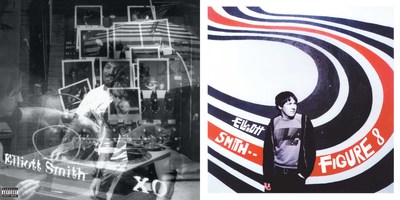
As an opener for noisier acts like Sebadoh, Smith often fought to be heard over talkative, disinterested crowds in rock clubs. Smith started out in the era of Kurt Cobain and Kathleen Hanna, when white dudes with acoustic guitars didn’t exactly move units unless they were on MTV Unplugged.

Part of this was because Smith’s music was decidedly out of step with his contemporaries. Even more favorable reviews from the LA Times, the Guardian, and NME (which called it his best album to date) tempered their praise with grim caricatures of Smith as the patron saint of wet blankets, as though to admit they’d enjoyed these songs would somehow tank their cooler-than-thou critic clout. SPIN ran a similarly snarky review, billing him as the harbinger of the death of indie rock while placing him somewhere on a continuum with Frankie Valli, Billy Corgan, and George Harrison.

It’s not the calm before the storm - it’s Smith in the eye of the hurricane, making his most brilliant work even as he veered completely off the rails.Īt the time of its release, Pitchfork panned it Ryan Schreiber himself all but called Smith a sellout while begrudgingly giving the album a 6.9. But, written as it was during one of the most tumultuous periods of Smith’s too-brief life, there’s darkness at its center. Its confident, Beatles-indebted melodies are imbued with the sunshine of Los Angeles, where Smith had recently relocated. On its surface, Figure 8 is a placid, accessible listen.

But nowhere do they come together to greater effect than on Smith’s fifth album (and final release before his violent demise), Figure 8, released 20 years ago this Saturday. On those last two, you can hear the most essential aspects of Smith’s oeuvre congealing - specifically, the exorcism of childhood trauma through means both healthy (the act of making music itself) and less so (drug abuse and other self-destructive behavior) and his absolute love for the White Album. Either/Or is his last indie record, and XO is his first for a major label, with an Oscar nomination somewhere in between securing his strange legacy and providing a little more musical freedom.

If you want to hear his eyewitness chronicle of Portland’s music scene at the height of the grunge era, his self-titled sophomore record does the trick. If you want to hear Elliott Smith’s anger, listen to Roman Candle.


 0 kommentar(er)
0 kommentar(er)
